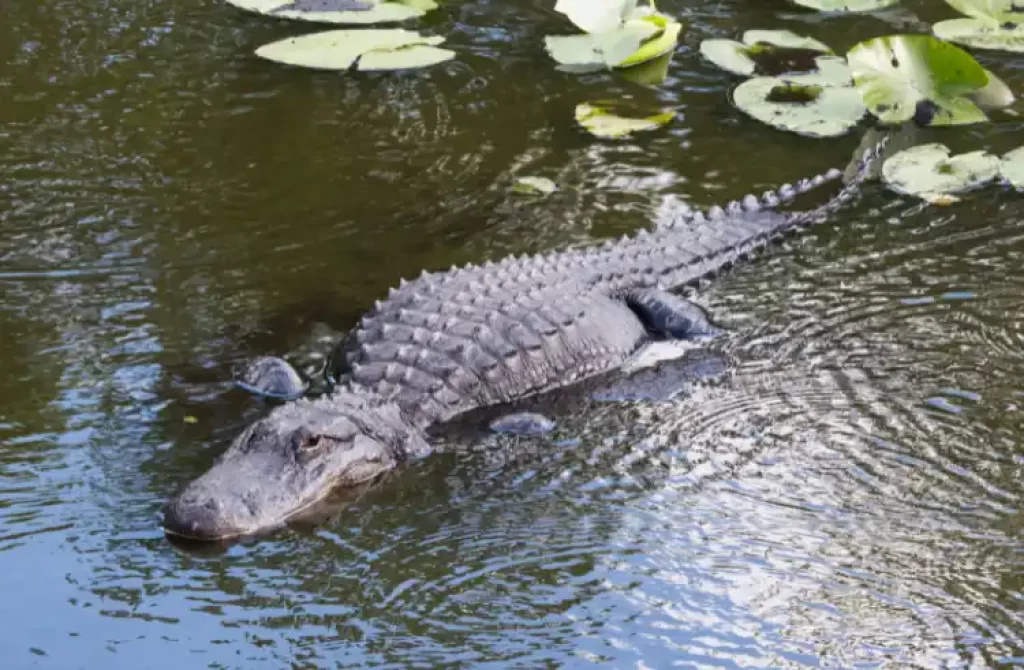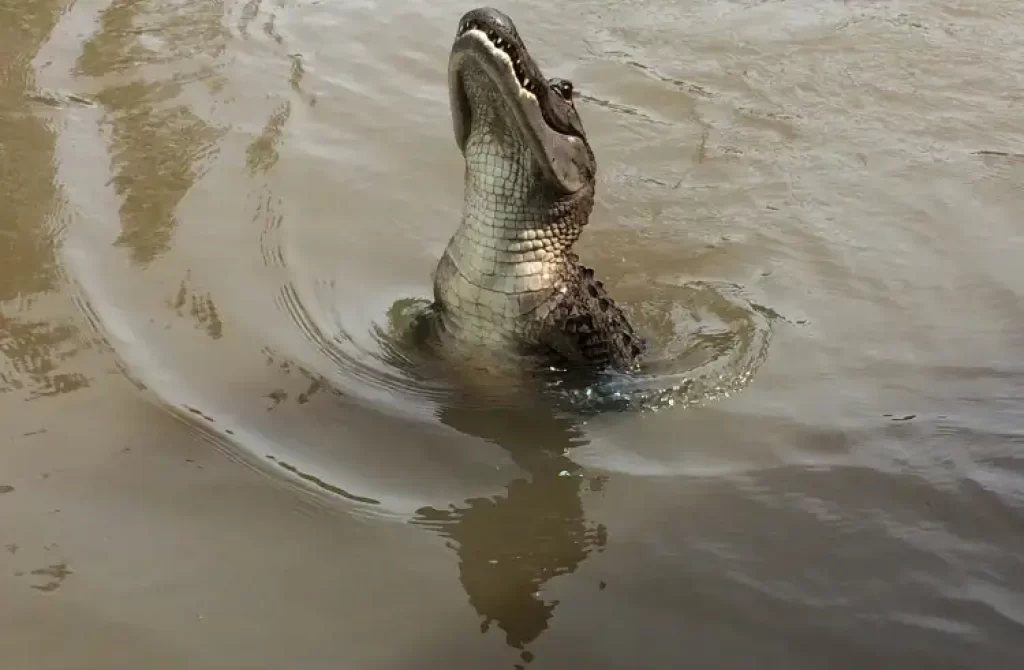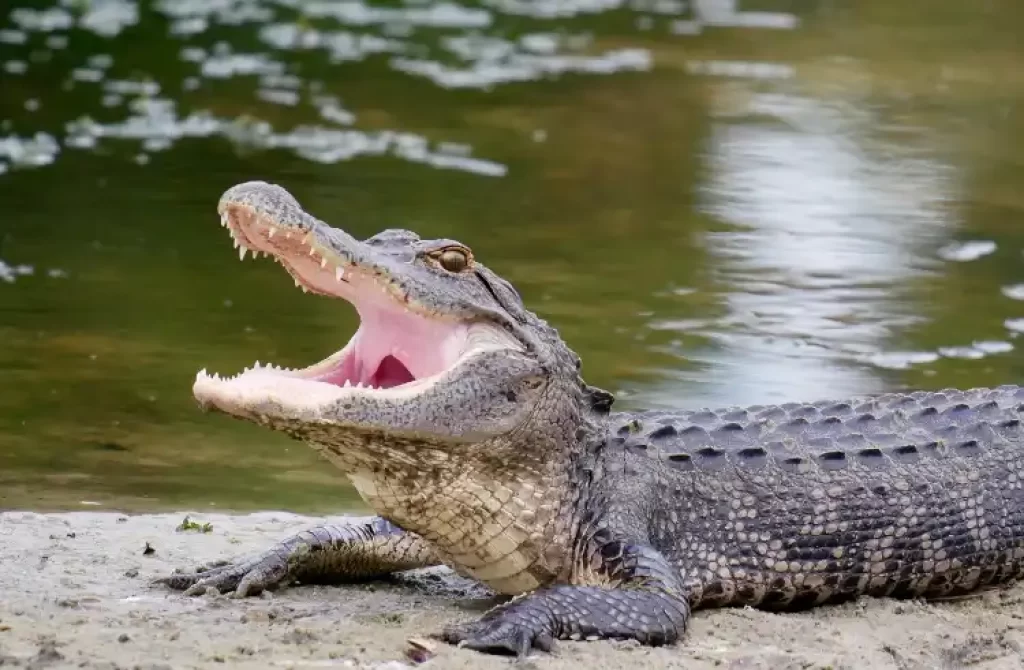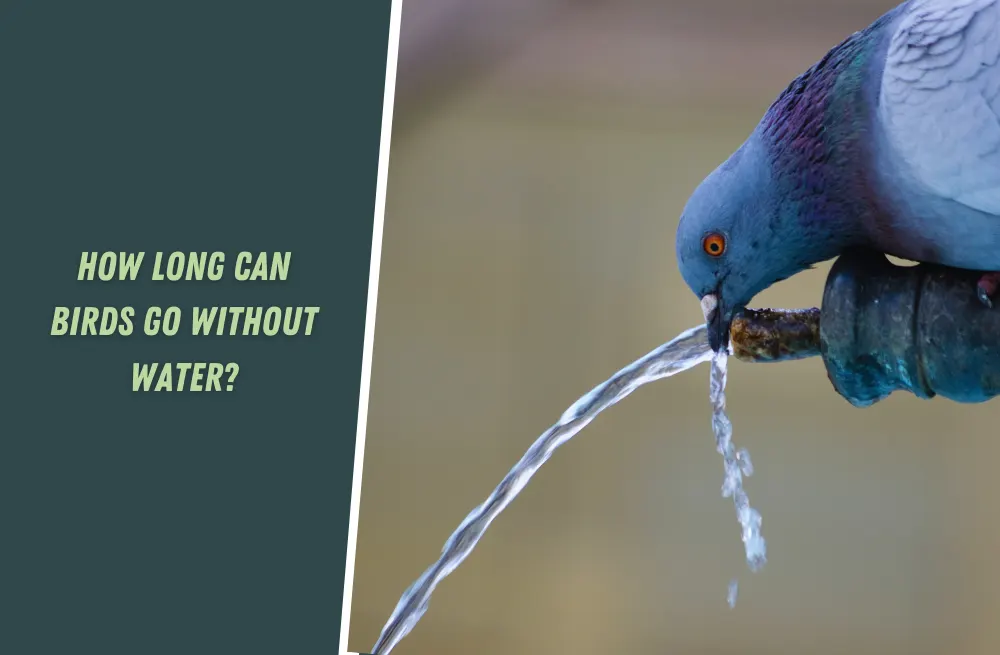Do American Alligators Eat Humans?
Alligators have been known to attack and kill humans, but it is rare for them to do so. While alligators are carnivorous and may see humans as potential prey, they are more likely to attack if they feel threatened or cornered.
Most human-alligator encounters happen when people venture too close to the alligator’s habitat, such as in the water or near its nest.
In general, alligators prefer to prey on smaller animals like fish, turtles, and birds, and do not see humans as their primary food source.
While there have been instances of alligators eating humans, these are relatively rare occurrences.
It is important for humans to exercise caution and avoid getting too close to alligators, especially in their natural habitat.
It is also important to note that feeding alligators is illegal and can lead to increased aggression towards humans.
How Normal is it For an Alligator to Eat Humans?

Alligators are often regarded as dangerous animals, but just how common is it for them to eat humans? The answer to this question is not straightforward, but it is important to understand the statistics and factors surrounding alligator attacks on humans.
Alligator attacks on humans are relatively rare occurrences. According to the Florida Fish and Wildlife Conservation Commission, there were 401 unprovoked alligator attacks on humans in Florida between 1948 and 2019, with only 25 of those resulting in fatalities.
While any death from an alligator attack is tragic, these numbers suggest that alligator attacks on humans are not a common phenomenon.
It is worth noting that most alligator attacks on humans are not premeditated, but rather a result of the animal feeling threatened or provoked.
Alligators generally do not view humans as prey, except in specific circumstances, such as when humans swim in areas known to be alligator habitats.
Various factors can contribute to alligator attacks, such as habitat loss and human interaction. With increased urbanization and human population growth, alligators are increasingly coming into contact with people, leading to more frequent human-alligator interactions.
Additionally, alligator habitats are being lost due to human development, which can result in increased aggression and territorial behavior from alligators.
Despite the relatively low risk of alligator attacks on humans, it is still crucial to take precautions when living or recreating in areas where alligators are present.
This includes avoiding swimming in areas where alligators are known to live, keeping a safe distance from alligators, and not feeding them. By taking these precautions, humans can coexist safely with alligators in their natural habitats.
Here’s a complete profile of the American Alligator (Alligator mississippiensis)
What do Alligators Eat?

Alligators are carnivorous predators and their diet mainly consists of meat. Their prey includes fish, turtles, snakes, birds, small mammals, and other reptiles.
Younger alligators tend to feed on smaller prey like insects, snails, and small fish, while adults typically feed on larger prey.
Alligators are known to be opportunistic feeders and will eat whatever prey is available. They are also known to scavenge, feeding on dead animals they come across. In some cases, they have been known to attack and eat domestic animals such as dogs or livestock.
| Type of Food | Examples |
|---|---|
| Fish | Catfish, bass, bream, mullet, tilapia, and more |
| Reptiles | Turtles, snakes, and small alligators |
| Birds | Water birds, such as egrets, herons, and ducks |
| Mammals | Small mammals, such as muskrats, raccoons, and nutria |
| Invertebrates | Crustaceans, such as crawfish and crabs, and insects |
Alligators have a unique way of feeding, which involves biting down on their prey with their powerful jaws, dragging it underwater, and then spinning their body to twist off a piece of meat.
They are able to digest bones, shells, and other tough materials due to their strong stomach acids.
What Provokes Alligators to Attack People?
Alligators are generally shy and try to avoid humans. However, they can become aggressive and attack if they feel threatened or provoked. Here are some factors that may provoke alligator attacks on people:
- Encroaching on Their Territory: Alligators are territorial animals and may view humans as threats if they come too close to their territory, especially during mating or nesting season.
- Surprising Them: Alligators may become aggressive if they are surprised by humans. This is why it’s important to be aware of your surroundings and avoid sudden movements if you are in an area known to be inhabited by alligators.
- Defending Their Young: Female alligators are highly protective of their young, and any perceived threat to their offspring can trigger an attack.
- Aggressive Behavior: Alligators may display aggressive behavior towards humans if they have been previously fed by them, mistreated, or harassed.
- Hunger: Although alligators do not commonly prey on humans, they may attack if they are hungry and see humans as potential prey.
- Provoking Them: Some people may intentionally provoke alligators by throwing objects at them or attempting to touch them. This is extremely dangerous and can easily trigger an attack.
How to Prevent Alligator Attacks

Preventing alligator attacks is important to ensure human safety and the conservation of alligator populations. Here are some tips to help prevent alligator attacks:
- Avoid feeding alligators: Feeding alligators can make them associate humans with food, which can lead to more aggressive behavior.
- Keep a safe distance: It is important to keep a safe distance from alligators, especially if they are seen basking in the sun or swimming in the water. Experts recommend staying at least 50 feet away from alligators.
- Stay out of the water: Alligators are primarily aquatic creatures and are most dangerous when they are in the water. Avoid swimming in areas where alligators are known to be present.
- Keep pets on a leash: Pets can attract alligators, and if an alligator sees a pet as prey, it may attack. Keep pets on a leash and away from the water in areas where alligators are known to live.
- Be vigilant in alligator habitats: It is important to be extra cautious when in areas where alligators are known to live. This includes keeping an eye out for alligators, looking for signs of alligator activity, and being aware of alligator behavior.
What Should you do if Bitten?
If you or someone around you is bitten by an alligator, it is essential to seek medical attention immediately. Alligator bites can cause severe injuries and infections, and quick treatment is crucial.
Here are the steps to take if bitten by an alligator:
- Call for emergency medical services immediately: Alligator bites can cause severe injuries and can be life-threatening. Getting medical attention as soon as possible is critical.
- Keep the bitten area still: Moving the affected area can cause the venom to spread more quickly throughout the body.
- Apply pressure to the wound: Applying pressure to the wound can help to slow down the spread of the venom.
- Clean the wound: Wash the bite wound thoroughly with soap and water.
- Don’t try to capture or kill the alligator: Trying to capture or kill the alligator that bit you is not recommended. This can put you or others in danger and is also illegal in many areas.
Remember, alligator attacks on humans are rare, but it’s important to take precautions to avoid them.
You might find interesting
- Do American Alligators Live in Mexico?
- Saltwater Crocodile (Crocodylus porosus)
- Morelet’s Crocodile (Crocodylus moreletii)
- Mugger Crocodile (Gavialis gangeticus)







